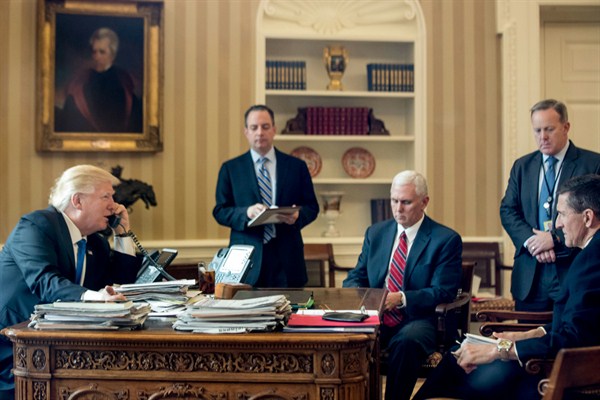U.S. President Donald Trump indicated what he really thinks about democracy in his address to a joint session of Congress late last month, and he did so without ever uttering the actual word. As his administration leaked details about his budget, including plans to raise defense spending by 10 percent and slash funding for the State Department and foreign aid, Trump pronounced that “Free nations are the best vehicle for expressing the will of the people—and America respects the right of all nations to chart their own path. My job is not to represent the world. My job is to represent the United States of America. But we know that America is better off, when there is less conflict—not more.”
These four sentences followed a revealing logic. The first sentence provides a small measure of support for democracies, asserting that “free nations” offer the best means for citizens to express themselves, and that the United States will continue to respect the principle of self-determination. But the second and third sentences are strong reminders that Trump’s primary focus is to represent and consider the interests of the United States, not to spread U.S. values to the rest of the world. Finally, the last sentence suggests that the United States is better off when there is less conflict in the world, which is possibly an affirmation of the democratic peace theory: Because conflict is bad and democracies go to war significantly less frequently than nondemocracies, it is in the U.S. interest to promote more democracies.
These four sentences in Trump’s speech are as far as one can go to make a plausible argument that the Trump team will incorporate, in limited circumstances, values-based considerations in its foreign policy. Far more likely, though, Trump will sideline, if not blatantly disregard, principles of democracy and human rights in his foreign policy deliberations. Reports that he wants to cut U.S. funding to the United Nations by more than half—decimating peacekeeping and humanitarian assistance programs—is just the latest indicator.

